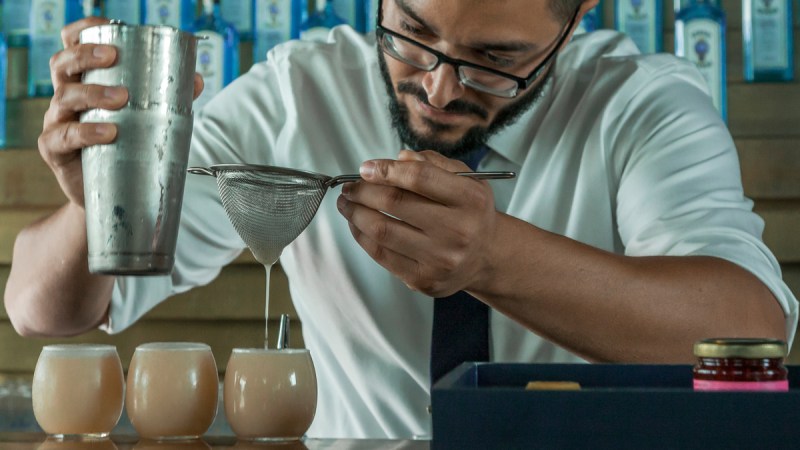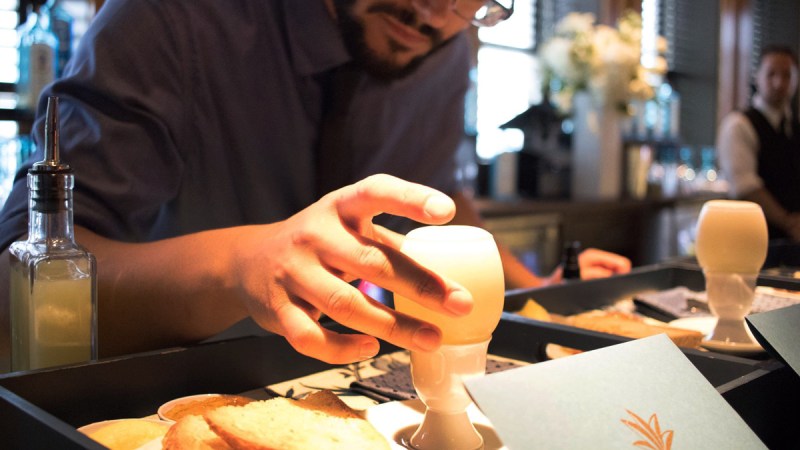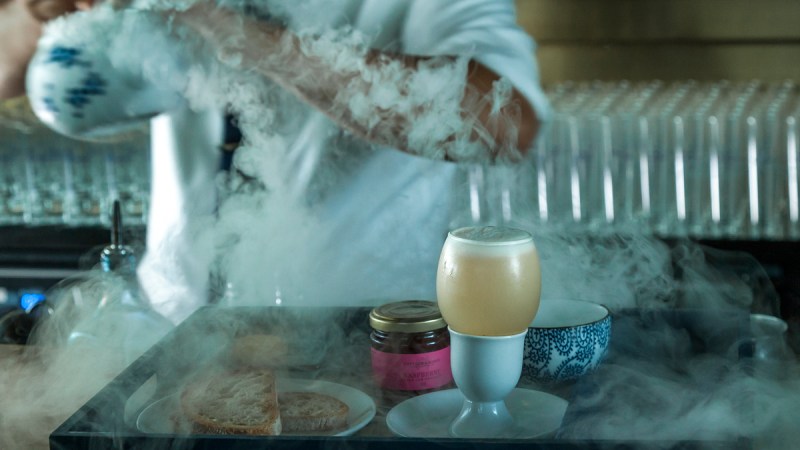To be an elite, award-winning bartender today, it takes a bit more than being able to pour some rum in a glass and topping it with cola. Hell, you need to be able to know more than your basic Old Fashioned and Manhattan recipes as well.
What you need, it’s becoming ever clearer as the move toward craft cocktails becomes less of a trend and more a way of life, is artistry. You need to be able to embrace both the art and the craft of bartending. Don’t believe us? Well, then listen to Schulyer Hunton of Tiger Mama in Boston, who won the Most Imaginative Bartender Competition 2016, sponsored by Bombay Sapphire for his cocktail “Breakfast in Bombay.”
So, it’s one thing to be an award-winner, but how do you get there? To Hunton, being aware of the myriad ways inspiration can strike was the key to starting.

“Inspiration comes from many different outlets, be it new ingredients, flavor combinations, visual inspiration like art, and as cheesy as it sounds I’ve even dreamed of a cocktail before and had to make it,” he said.
From there, practice and repetition with refinement were key to building what would become an award-winning cocktail. It wasn’t just “one and done.” It was almost completely the exact opposite of that. For the syrup alone, Hunton said he made between ten and fifteen different iterations before trying three or four different builds of the cocktail per syrup. He wanted it, he said, to be “the best, most honed cocktail I could make.”
Making it the best he could translates to a lot of practice cocktails, mainly in the form of trial drinks for him, for his friends, and for the people that wouldn’t bullshit him when it came to what they really thought.
“No one has ever gotten better at what they do by always being told they are perfect, so I like to know when something’s not right cause then I can try to fix it,” Hunton said.
Finally, after countless trials, Hunton reached an iteration of the drink he was proud of. With the ingredients in check, the next part, the presentation (the hardest part, according to Hunton), loomed.

“Most Imaginative Bartender is a completely different animal compared to other competitions. The presentation and creative side of the cocktail is miles above and beyond other competitions’ requirements.”
Hunton credits his girlfriend Michelle with helping him hone the presentation of his cocktail and prepare the verbal portion as well.
“She must have heard that presentation a couple dozen times from front to back,” he said.
With those two parts in check and ready, Hunton did his best before multiple panels of judges, finally being crowned the tenth winner of the Most Imaginative Bartender competition.
Check out Hunton’s award-winning cocktail below, and stay tuned to see who will be crowned this year’s Most Imaginative Bartender.
Breakfast in Bombay

- 2 oz Bombay Sapphire Gin
- .75 oz Compound Grapefruit Earl Grey Oleo *
- .5 oz Lemon Juice
- .5 oz Egg White
Method: Garnish with a spritz of Adam Elmegirab Teapot Bitters in the center of the cocktail. Combine all ingredients in a shaker, hard shake and double strain into a coupe glass.
*Earl Grey Oleo: Weigh the peels of 8 grapefruits, then use the same weight of white sugar and muddle these ingredients together. When the sugar has turned to syrup, add another of the same measurement of sugar and add 4 ounces of grapefruit juice. Muddle this again and once the sugar has dissolved strain out the peels. Take one cup of syrup and add 3 tablespoons of earl grey tea. Heat the syrup and tea and let steep for 10 minutes, strain out the tea syrup and then stir it back into the remaining syrup.



